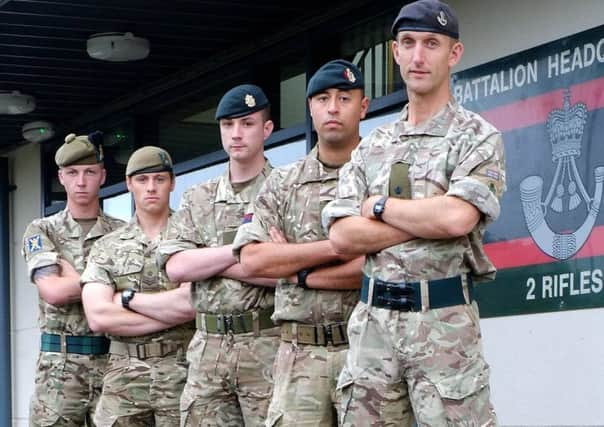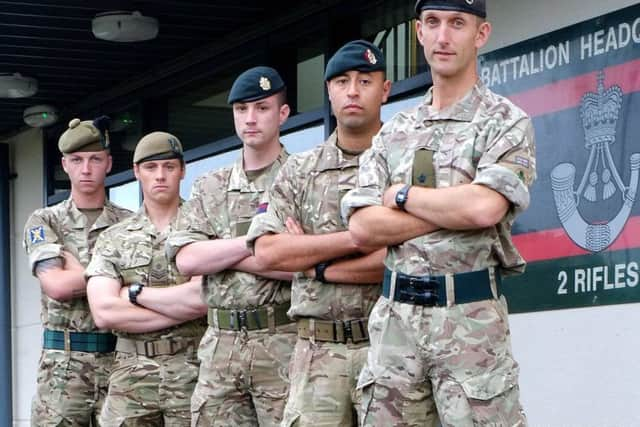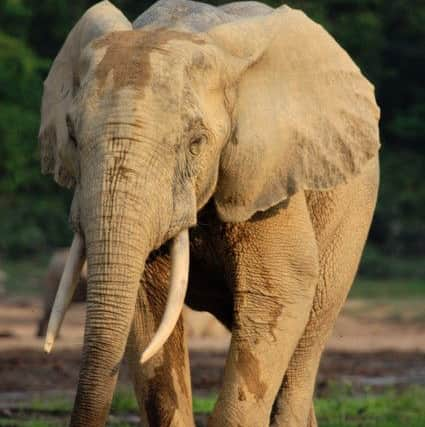WATCH: Borders soldiers on way to help African elephants


The troops are heading for Gabon after a request from the country’s president for help in battling ivory poaching which has brought forest elephants to the brink of extinction.
In the past decade over 15,000 of Gabon’s estimated 22,000 forest elephants in the huge Minkebe National Park alone have been slaughtered by poachers for a lucrative Asian market. The World Wildlife Fund regional director Pauwel De Wachter has declared it as a “big, big crisis” and Gabon president Ali Bongo has pledged war on poachers.
Advertisement
Hide AdAdvertisement
Hide AdThe Belfast-soldiers, who are all part of 38 (Irish) Brigade, will be working with Gabon Park Rangers at a military training centre at Mokekou – nine hours drive from the nearest centre of population.


There they will be sharing operational experience and training including surveillance and analysis as well as collection and use of criminal intelligence to support successful prosecution of gangs responsible for the slaughters.
As well as the Royal Scots Borderers (1 SCOTS, Royal Regiment of Scotland), the team comprises personnel from a range of other units, including 2 Rifles - based at Lisburn - plus specialist corps.
The team has been put together to provide a range of operational skills that can be shared with the Gabon Park Rangers.
Advertisement
Hide AdAdvertisement
Hide AdWith almost 90 per cent of Gabon being forested and highly sophisticated gangs operating across vast swathes under dense canopy the Parks Agency faces a huge task.


Major Mark Shercliff who heads up the team is under no illusions about the task. “It’s a challenging environment for the Park Agencies in Gabon and for ourselves as soldiers,” he said.
“With a range of forestation across a hilly environment it is not a straightforward task. We have junior soldiers with a range of tactical experience, we have strong and experienced instructors who work with troops deploying all over the globe.
“This allows us to focus on low level skills as well as building the teams that will be needed within the Park Agencies.”
Advertisement
Hide AdAdvertisement
Hide AdHe is also under no illusion that it will take a huge international and political effort to end the poaching and save the forest elephants from extinction.


“Military input cannot solve this alone, but it can help at the tactical level. There is a lot of work to be done above us all in the political sphere by getting countries around the world to combat poaching in a way that is joined up – this is not a phenomenon that belongs to the single country or single continent.”